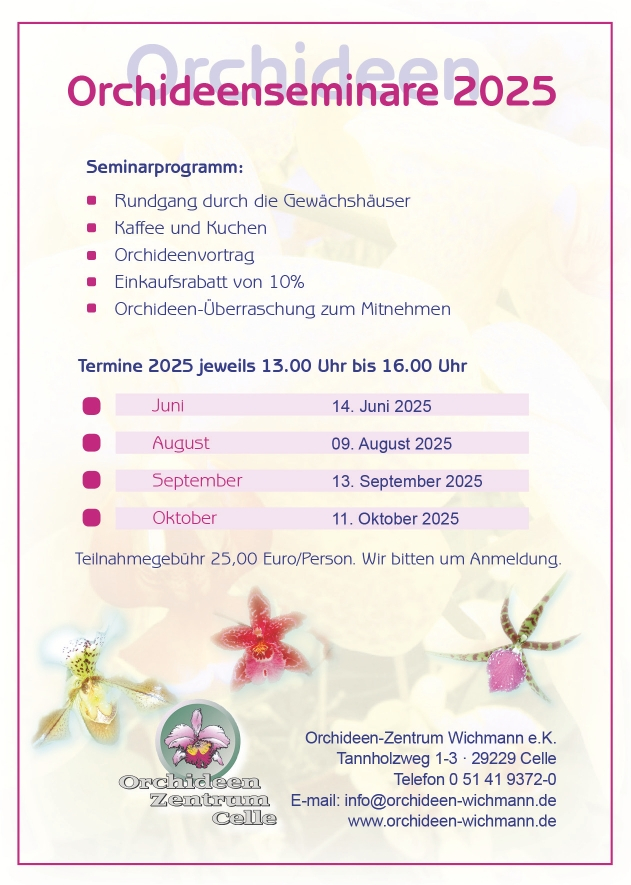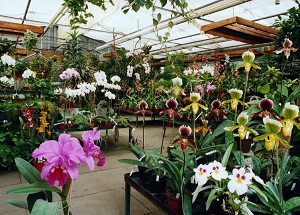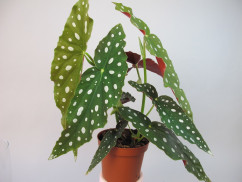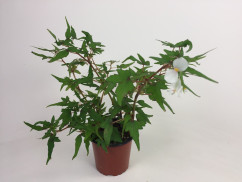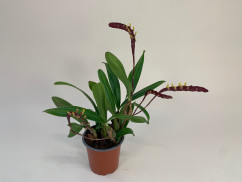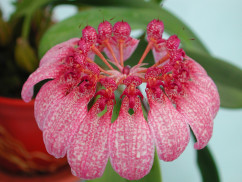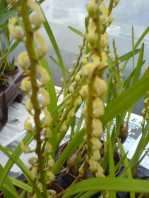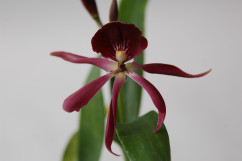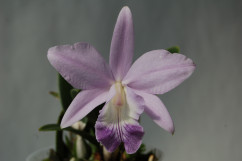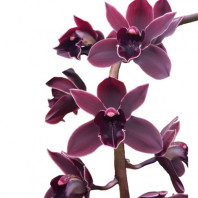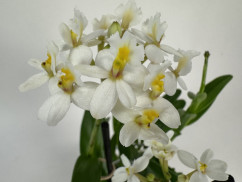Fragrant Orchids
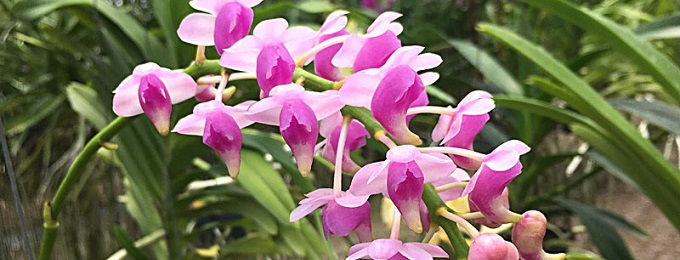
Fragrant orchids are not so rare in the orchid world. Many flowers have a natural, pleasant scent.
Still others have a penetrating smell. Mostly, the fragrance of an orchid ultimately serves the better preservation of the species, because it is imitating or attracting a pollinating insect. When attracting nature amazing things can often come up. For example, a warning smell of an injured insect is mimicked. As a result, wasps are attracted to scent the apparently easy prey.Then they pollinate the flowering and so the progeny is secured.
Special hints and tips for fragrant orchids
An orchid flower exudes pheromone. These are sex hormones from insects. For example, the fragrance orchid flips the insect into a female willing to mate and the male insect falls for it and pollinates the flower. The orchid gardener takes advantage of the scent properties and deliberately intersects fragrant varieties, creating interesting new varieties whose above-average flowering and growth properties are combined with a pleasant fragrance.

Aerangis fastuosa
- flower season: winter - spring
- temperature: cool (10 - 16 °C)
- Mehr Details
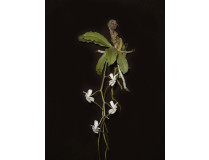
Aerangis verdickii
- flower season: spring - summer
- temperature: moderate - warm (18 - 22 °C)
- Mehr Details

Aerides magnifica 'alba'
- flower season: summer - autumn
- temperature: warm (20 - 24 °C
- Mehr Details

Aerides quinquevulnera (Importpflanze)
- flower season: summer - autumn
- temperature: warm (20 - 24 °C
- Mehr Details
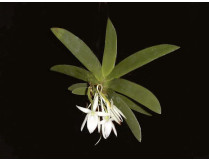
Angraecum leonis
- flower season: spring - summer
- temperature: moderate - warm (18 - 22 °C)
- Mehr Details

Bifrenaria harrisoniae 'alba' x Lycaste Spring Scene
- flower season: spring
- temperature: cool - moderate (12 - 18 °C)
- Mehr Details

Bletilla striata 'purple' (frisch ausgetrieben)
- flower season: june - august
- Mehr Details
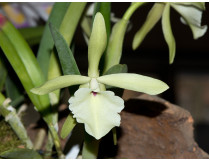
Brassavola glauca (blühstark, frisch getopft)
- flower season: spring
- temperature: moderate - warm (18 - 22 °C)
- Mehr Details

Bulbophyllum ambrosia
- flower season: winter
- temperature: moderate - warm (18 - 22 °C)
- Mehr Details

Bulbophyllum fletcherianum 'Miss Floralia' (Jgpfl. fast blühstark, frisch getopft)
- flower season: spring - summer
- temperature: warm (20 - 24 °C
- Mehr Details

Bulbophyllum medusae (Importpflanze)
- flower season: summer - autumn
- temperature: warm (20 - 24 °C
- Mehr Details
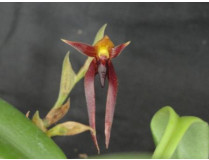
Bulbophyllum nymphopolitanum
- flower season: winter
- temperature: warm (20 - 24 °C
- Mehr Details

Burrageara Barrocco Red (3-4 Rispen)
- flower season: whole year
- temperature: moderate (16 - 20 °C)
- Mehr Details
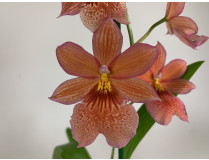
Burrageara Nelly Isler 'Orange' (2 Rispen)
- flower season: whole year
- temperature: moderate (16 - 20 °C)
- Mehr Details

Burrageara Nelly Isler 'Rosy' (2 Rispen)
- flower season: whole year
- temperature: moderate (16 - 20 °C)
- Mehr Details
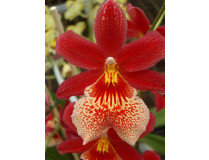
Burrageara Nelly Isler (2 Rispen)
- flower season: whole year
- temperature: moderate (16 - 20 °C)
- Mehr Details
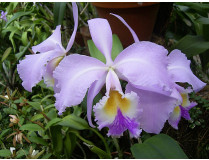
Cattleya gaskelliana
- flower season: spring - summer
- temperature: warm (20 - 24 °C
- Mehr Details
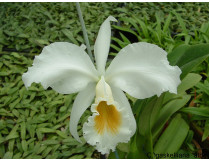
Cattleya gaskelliana 'alba'
- flower season: summer - autumn
- temperature: cool - moderate (12 - 18 °C)
- Mehr Details
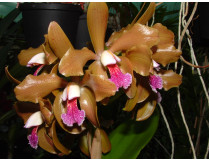
Cattleya granulosa 'Bernsteinzimmer'
- flower season: spring - summer
- temperature: moderate - warm (18 - 22 °C)
- Mehr Details

Cattleya intermedia 'aquinii'
- flower season: spring - summer
- temperature: cool - moderate (12 - 18 °C)
- Mehr Details

Cattleya iricolor (blühstark, frisch getopft)
- flower season: winter - spring
- temperature: moderate - warm (18 - 22 °C)
- Mehr Details
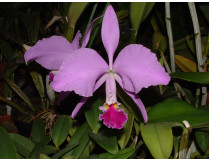
Cattleya jenmannii (Jgpfl.)
- flower season: summer - autumn
- temperature: warm (20 - 24 °C
- Mehr Details
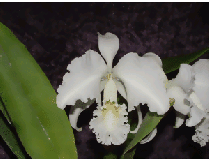
Cattleya labiata 'alba' (Jgpfl.)
- flower season: autumn winter
- temperature: moderate - warm (18 - 22 °C)
- Mehr Details
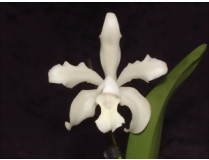
Cattleya leopoldii 'alba'
- flower season: summer - autumn
- temperature: moderate - warm (18 - 22 °C)
- Mehr Details
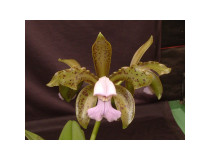
Cattleya leopoldii 'coerulea'
- flower season: summer - autumn
- temperature: moderate - warm (18 - 22 °C)
- Mehr Details

Cattleya leopoldii 'Schokoladenprinz SM/DOG' x leopoldii 'Dark Prince' (blühstark, frisch getopft)
- flower season: summer - autumn
- temperature: moderate - warm (18 - 22 °C)
- Mehr Details
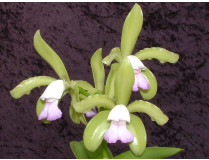
Cattleya leopoldii 'semi-alba'
- flower season: summer - autumn
- temperature: moderate - warm (18 - 22 °C)
- Mehr Details
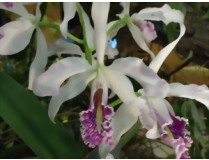
Cattleya maxima 'alba' x 'semi-alba'
- flower season: autumn winter
- temperature: warm (20 - 24 °C
- Mehr Details
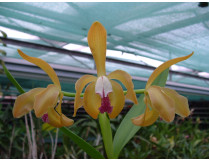
Cattleya porphyroglossa (Jgpfl.)
- flower season: summer
- temperature: cool - moderate (12 - 18 °C)
- Mehr Details
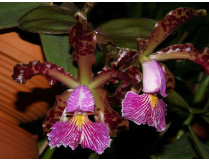
Cattleya schilleriana
- flower season: summer - autumn
- temperature: cool - moderate (12 - 18 °C)
- Mehr Details
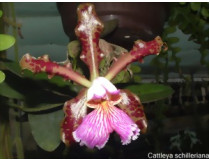
Cattleya schilleriana 'imperialis'
- flower season: summer - autumn
- temperature: cool - moderate (12 - 18 °C)
- Mehr Details
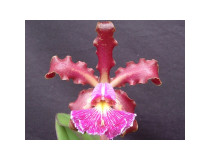
Cattleya schilleriana 'sanderiana'
- flower season: summer - autumn
- temperature: cool - moderate (12 - 18 °C)
- Mehr Details
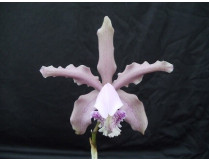
Cattleya schilleriana x kerrii
- flower season: summer - autumn
- temperature: cool - moderate (12 - 18 °C)
- Mehr Details
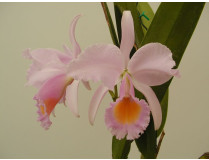
Cattleya schroederae
- flower season: spring
- temperature: warm (20 - 24 °C
- Mehr Details
Tips and information about scented orchids
Orchids have become popular mainly because of their marvellous flowers. However, some species also exude a pleasantly sweet fragrance. The facets of their odeurs range from subtle to penetrating and are reminiscent of exotic fruit varieties or spicy flavours.
Why do orchids actually smell?
We love to smell flowers! But just like the beautiful blossom, their fragrance is not intended to beguile us humans. Rather, it fulfils a practical purpose: the scent of the flower gives the plant an evolutionary advantage because it attracts very specific pollinators and helps the plant to reproduce. For example, the flower of the South African orchid species Satyrium pumilum smells like a dead animal to flesh flies and attracts them with the promise of a meal. When the fly realises that it has been led around by the nose, it has long since pollinated the flower. Another species emits an odour that is modelled on the sexual attractants of pollinating insects. If a male insect smells the odour, it believes it will find a female on the orchid flower who is willing to mate and pollinates the flower while it searches in vain for its partner.
Natural forms and modern hybrids
We are more fond of orchids that have a sweet fragrance, even to our noses. Breeders have crossed other outstanding characteristics into fragrant orchids so that we don't have to sacrifice flowering vigour or vigorous growth. However, natural forms have the edge when it comes to fragrance. The number of scent cells in the flower determines how strong a flower smells and original forms have more of these than multihybrids.
If you would like to bring such a special orchid into your home, you should contact a specialised dealer. Scented orchids are special species that are difficult to find in DIY stores.
These species are fragrant
In our favourite genus of butterfly orchids (Phalaenopsis) there are some fragrant representatives that we are particularly fond of. The enchanting star-shaped flowers of Phalaenopsis corningiana, Phalaenopsis bellina and Phalaenopsis violacea have a spicy, aromatic scent reminiscent of cinnamon.
Within the Maxillaria group a few species such as Maxillaria tenuifolia or Maxillaria rufescens which are also called coconut orchids for obvious reasons - have stored their exotic ancestry in their flower scent. With a scent of vanilla, lemon or coconut, they add an exotic flair to your living room.
We love the magnificent flowers of Coleogyne cristata, but did you know that they not only look enchanting, but also smell delicately of bananas? Even though we love orchids above all for their eye-catching, extravagant flower shape, there are still some secret treasures to be discovered in the world of scented orchids! Why don't you browse through our scented orchids category?

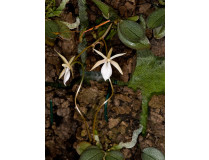
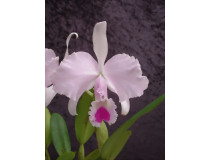
 ... to newsletter subscription
... to newsletter subscription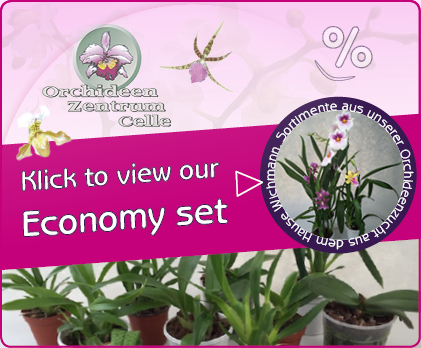 ... to see all economy sets
... to see all economy sets